Chinese President Xi Jinping attended the restricted session of the 22nd Meeting of the Council of Heads of State of the Shanghai Cooperation Organization (SCO) at the Samarkand Congress Center in Uzbekistan on Friday.
The meeting was chaired by Uzbek President Shavkat Mirziyoyev, and attended by leaders of SCO member states including Russian President Vladimir Putin, Kazakh President Kassym-Jomart Tokayev, Kyrgyz President Sadyr Zhaparov, Tajik President Emomali Rahmon, Indian Prime Minister Narendra Modi, and Pakistani Prime Minister Shehbaz Sharif. They exchanged views on SCO development and major international and regional issues bearing on the political and economic situation in the region.
At 9:55 a.m. local time, President Xi and leaders of other SCO member states arrived at the Samarkand Congress Center and received a warm welcome from President Mirziyoyev.
The leaders took a group photo before the restricted session started.
In his statement, Xi spoke highly of Uzbekistan's hard work and important contribution in preparing for the Samarkand summit and advancing SCO's development under its presidency.
President Xi pointed out that since the founding of the SCO more than twenty years ago, it has upheld the Shanghai Spirit and succeeded in exploring a new path for the development of international organizations. There is much we can draw on from its rich practices, he said.
It is important to forge political trust. Guided by the vision of forging enduring friendship and peace among the SCO member states, we respect each other’s core interests and choice of development path and support each other in achieving peace, stability, development and rejuvenation.
It is important to pursue win-win cooperation. We accommodate each other’s interests, stay true to the principle of consultation and cooperation for shared benefits, enhance synergy between our respective development strategies, and keep to the path of win-win cooperation toward common prosperity.
It is important to treat each other as equals. We are committed to the principle of equality among all countries regardless of their size, consensus-based decision-making, and addressing issues through friendly consultations. We reject the practice of the strong bullying the weak or the big bullying the small.
It is important to advocate openness and inclusiveness. We stand for harmonious coexistence and mutual learning between different countries, nations and cultures, dialogue between civilizations and seeking common ground while shelving differences. We are ready to establish partnership and develop win-win cooperation with other countries and international organizations that share our vision.
Xi stressed that the world today is not a peaceful place. Rivalry between two sets of policy choices — unity or division, cooperation or confrontation — is getting more acute. This brings shocks to world peace and stability and is detrimental to the long-term development of the region. In the face of the complex situation, we need to keep the SCO on the right course, deepen cooperation in various fields, and continue to foster a favorable environment for the development and rejuvenation of member states, he said.
Xi outlined several priorities going forward.
First, staying committed to the Shanghai Spirit and enhancing solidarity and cooperation. It is important that the SCO stay true to its founding mission, increase mutual trust, and join forces to cope with the complex changes in the external environment. Member states need to continue to support each other on matters concerning each other’s core interests and major concerns and serve as strong backing for each other’s development and rejuvenation.
Second, maintaining strategic independence and safeguarding regional stability. Member states need to advocate the vision of common, comprehensive, cooperative and sustainable security and reject any attempt to create bloc confrontation and damage regional stability. Bearing in mind the security needs of countries in the region, they should build consensus on security cooperation, and work together to protect sustained stability and security in the region. The SCO should enhance its law enforcement cooperation and prevent terrorist and extremist forces from jeopardizing regional security.
Third, pursuing inclusiveness and shared benefits in promoting development cooperation. Member states should actively promote trade and investment liberalization and facilitation, ensure the stable and smooth functioning of industrial and supply chains, and encourage the orderly flow of resources and factors of production, so as to realize greater economic integration and development in the region. They should redouble efforts to promote complementarity between the Belt and Road Initiative and other national development strategies and regional cooperation initiatives to stimulate the dynamism for growth in participating countries.
Fourth, advancing the SCO expansion process and strengthening SCO institutions. An increasing number of countries have applied to join the SCO family. This fully demonstrates the power of SCO’s vision and the widely shared confidence in its future. The SCO should seize the opportunity and step up its work to expand the ranks of cooperation and augment the effective force for international equity and justice.
Xi noted that the Communist Party of China would soon convene its 20th National Congress to draw up a blueprint for China’s development in the next stage. No matter what changes may take place in the international landscape, China will remain firm in its commitment to peaceful, open, cooperative and common development, and continue to see the SCO as a priority in its diplomacy. China stands ready to draw on its own development to contribute to the development of countries in the region and to a better life for the people in the countries.
Chinese State Councilor and Foreign Minister Wang Yi was present at the event.









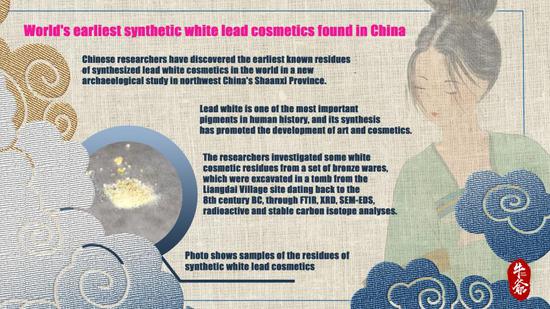

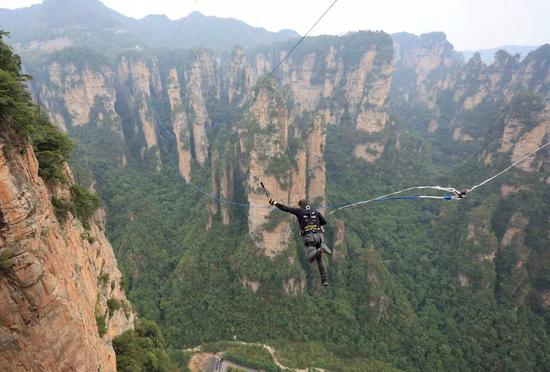
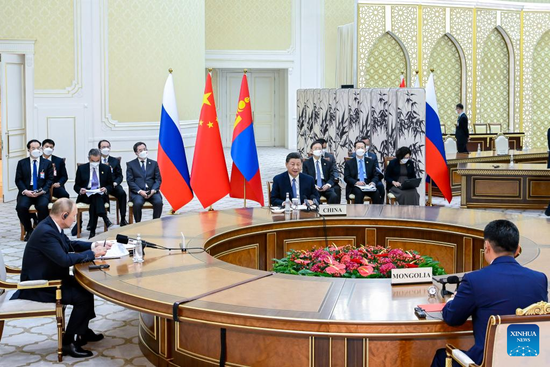
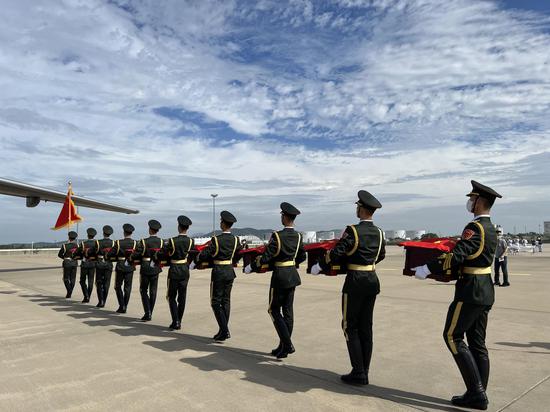



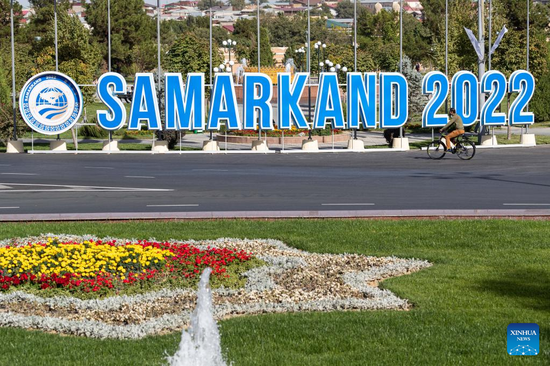

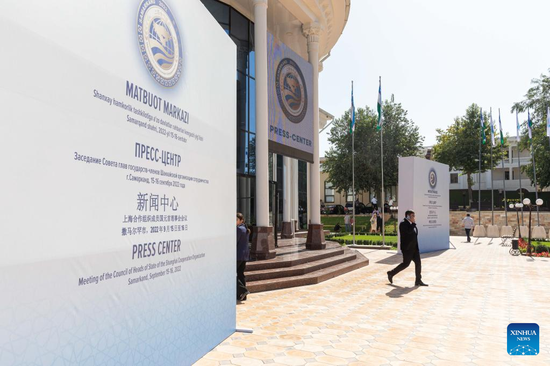

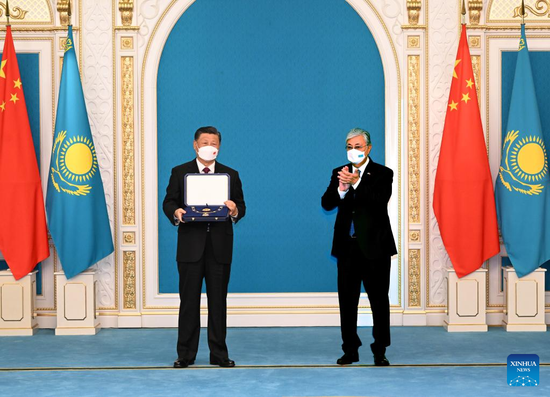
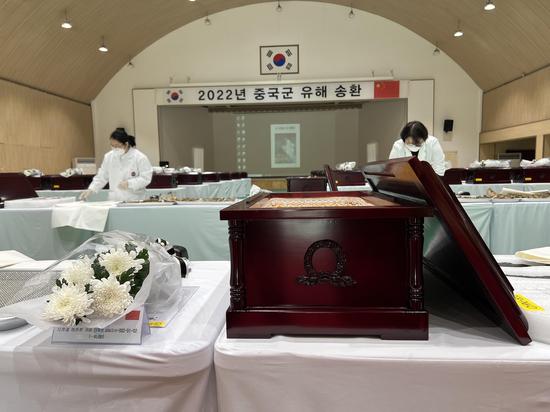

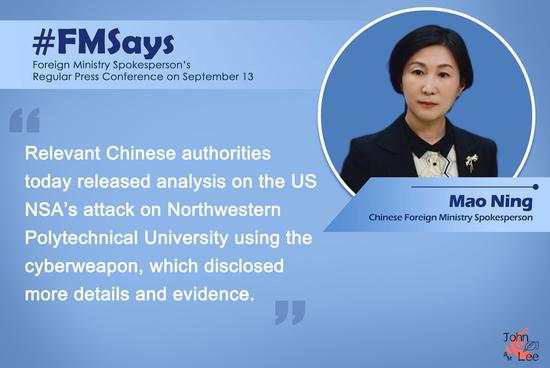



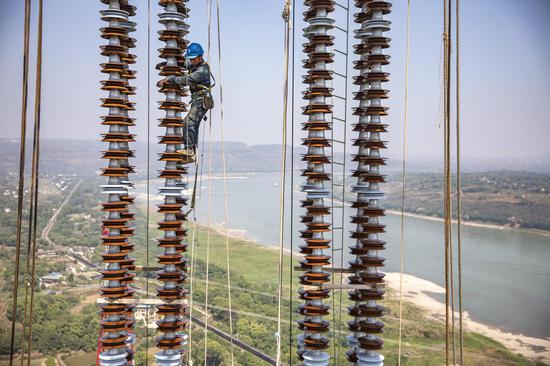


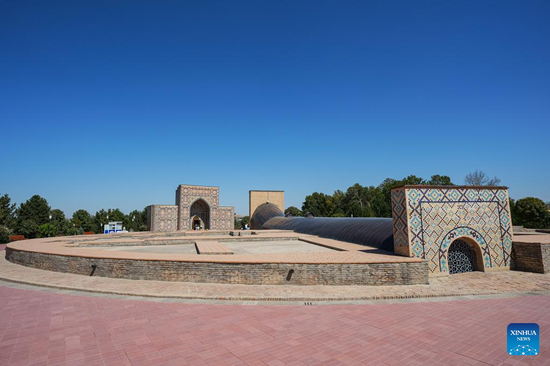


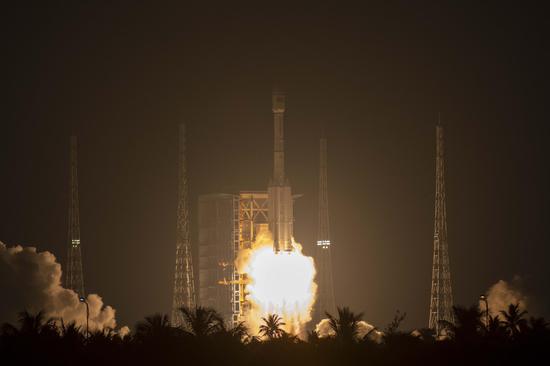
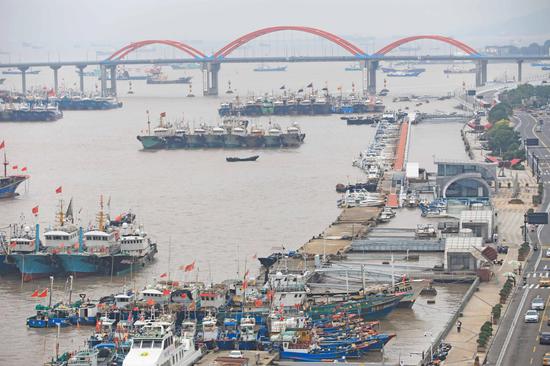



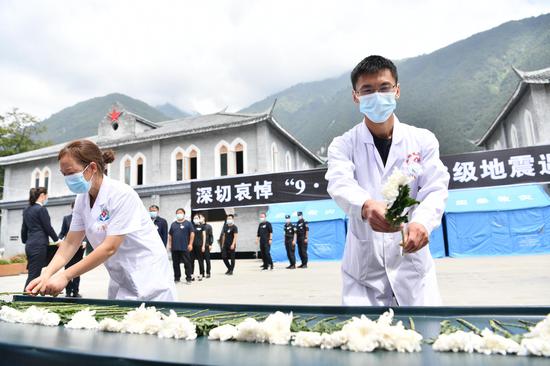

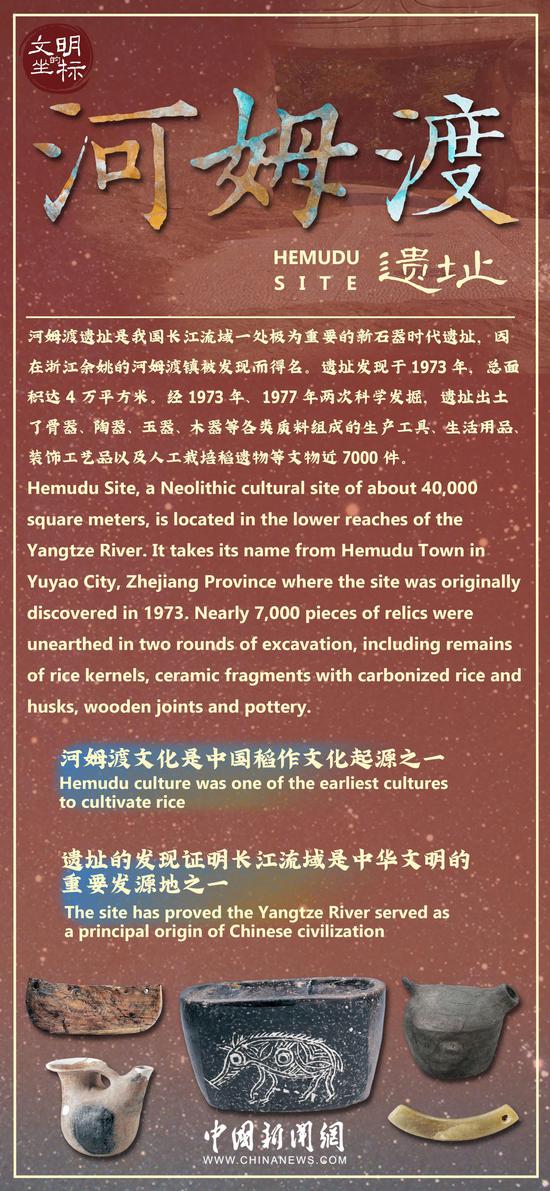








 京公网安备 11010202009201号
京公网安备 11010202009201号